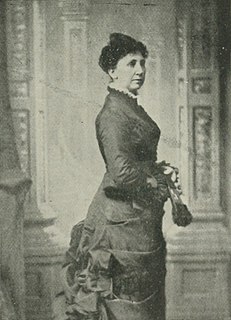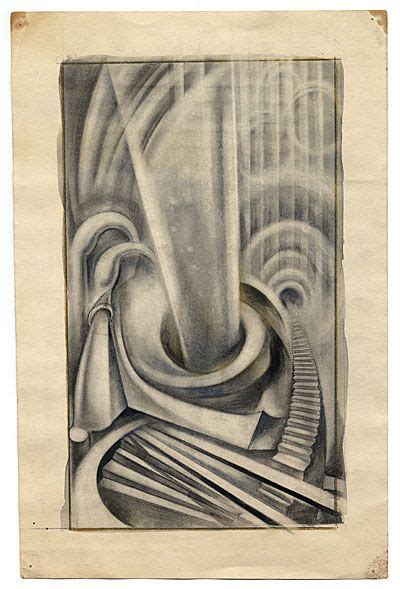A Quote by Henry Ward Beecher
That which distinguishes man from the brute is his power, in dealing with Nature, to milk her laws, and make them give forth their bounty.
Related Quotes
Man has reason, discrimination and free-will such as it is. The brute has no such thing. It is not a free agent, and knows no distinction between virtue and vice, good and evil. Man, being a free agent, knows these distinctions, and when he follows his higher nature, shows himself far superior to the brute, but when he follows his baser nature can show himself lower than the brute.
How shall we define occultism? The word is derived from the Latin occultus, hidden; so that it is the study of the hidden laws of nature. Since all the great laws of nature are in fact working in the invisible world far more than in the visible, occultism involves the acceptance of a much wider view of nature than that which is ordinarily taken. The occultist, then, is a man who studies all the laws of nature that he can reach or of which he can hear, and as a result of his study he identifies himself with these laws and devotes his life to the service of evolution.
Today the manliest man would be ashamed to look into the eyes of the woman by his side and tell her that he is the master because he could knock her down with perfect ease, and break her bones with much greater facility than she could his. And yet, out of man's brute nature, out of that most ignoble in himself, has come his loudest assumption of superiority, his longest and lowest tyranny.
Nature does nothing in vain, and in the use of means to her goals she is not prodigal. Her giving to man reason and the freedom of the will which depends upon it is clear indication of her purpose. Man accordingly was not to be guided by instinct, not nurtured and instructed with ready-made knowledge; rather, he should bring forth everything out of his own resources.
If the world is an aggregate of relatively independent regions, then any assumption of universal laws is false and a demand for universal norms tyrannical: only brute force (or seductive deception) can then bend the different moralities so that they fit the prescriptions of a single ethical system. And indeed, the idea of universal laws of nature and society arose in connection with a life-and-death battle: the battle that gave Zeus the power over the Titans and all other gods and thus turned his laws into the laws of the universe.
I believe there are an infinite number of laws of the universe and that all progress or dreams achieved come from operating in a way that's consistent with them. These laws and the principles of how to operate in harmony with them have always existed. We were given these laws by nature. Man didn't and can't make them up. He can only hope to understand them and use them to get what he wants.
I know no study which is so unutterably saddening as that of the evolution of humanity, as it is set forth in the annals of history. Out of the darkness of prehistoric ages man emerges with the marks of his lowly origin strong upon him. He is a brute, only more intelligent than the other brutes, a blind prey to impulses, which as often as not led him to destruction; a victim to endless illusions, which make his mental existence a terror and a burden, and fill his physical life with barren toil and battle.
The Laws of Nature are just, but terrible. There is no weak mercy in them. Cause and consequence are inseparable and inevitable. The elements have no forbearance. The fire burns, the water drowns, the air consumes, the earth buries. And perhaps it would be well for our race if the punishment of crimes against the Laws of Man were as inevitable as the punishment of crimes against the Laws of Nature -were Man as unerring in his judgments as Nature.
Nothing comes to pass in nature, which can be set down to a flaw therein; for nature is always the same, and everywhere one and the same in her efficacy and power of action: that is, nature's laws and ordinances, whereby all things come to pass and change from one form to another, are everywhere and always the same; so that there should be one and the same method of understanding the nature of all things whatsoever, namely, through nature's universal laws and rules.
What the working man sells is not directly his Labor, but his Laboring Power, the temporary disposal of which he makes over to the capitalist. This is so much the case that I do not know whether by the English Law, but certainly by some Continental Laws, the maximum time is fixed for which a man is allowed to sell his laboring power. If allowed to do so for any indefinite period whatever, slavery would be immediately restored. Such a sale, if it comprised his lifetime, for example, would make him at once the lifelong slave of his employer.
When one speaks of humanity, the idea is fundamental that this is something which separates and distinguishes man from nature. In reality, however, there is no such separation: "natural" qualities and those called truly "human" are inseparably grown together. Man, in his highest and noblest capacities, is wholly nature and embodies its uncanny dual character. Those of his abilities which are terrifying and considered inhuman may even be the fertile soil out of which alone all humanity can grow in impulse, deed, and work.




































